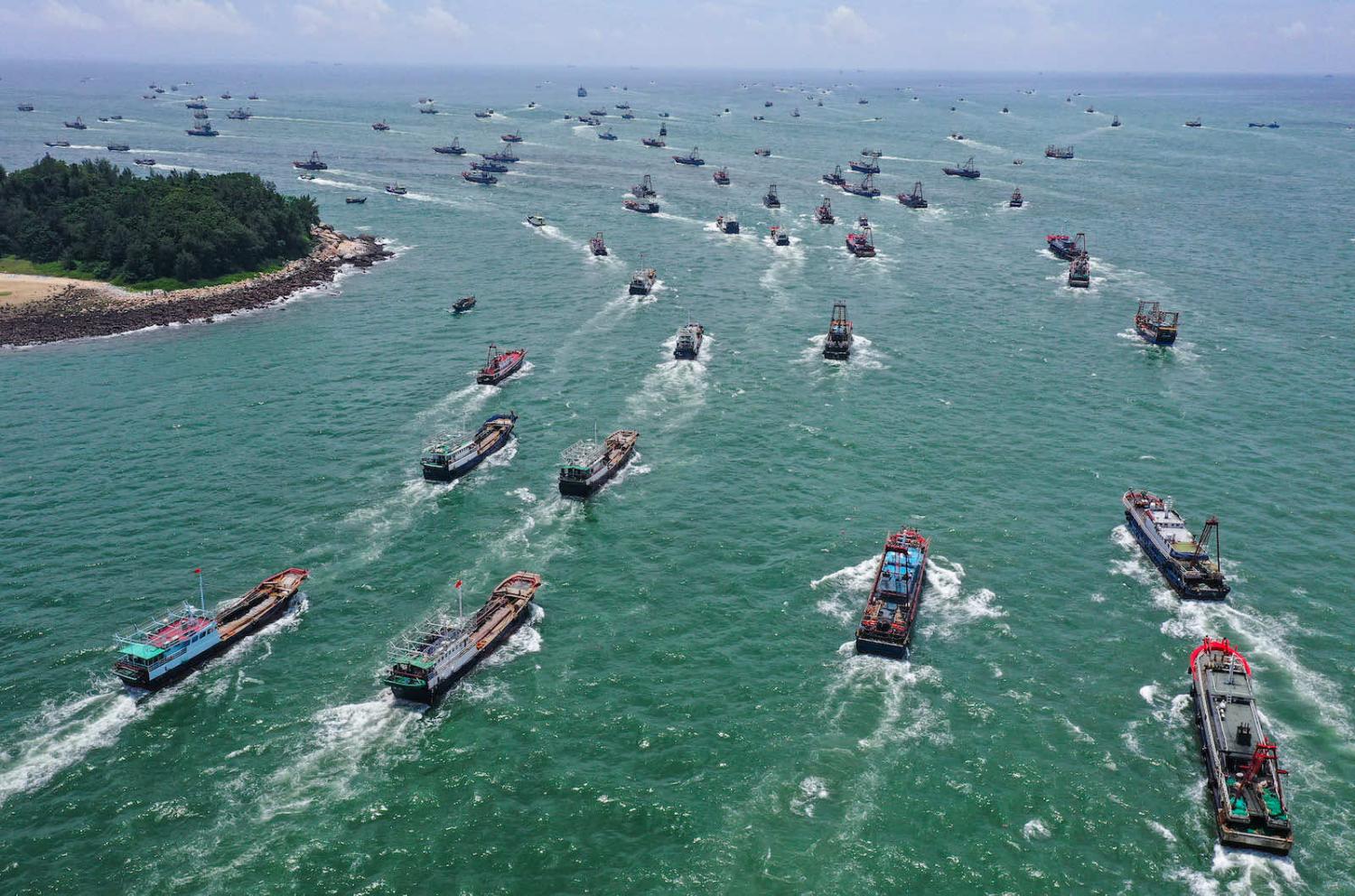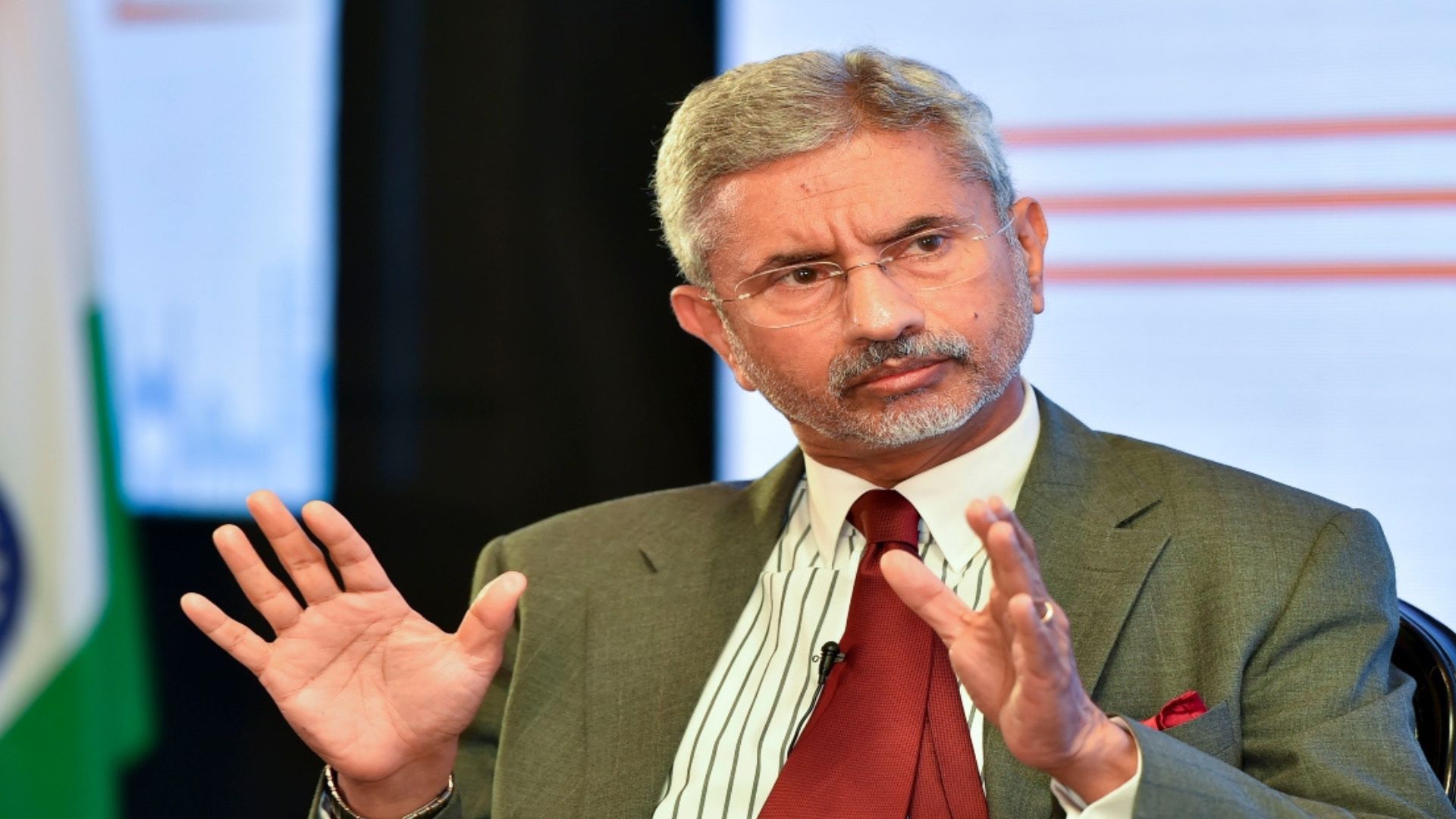
In recent days, the Red Sea has become a hotbed of tension, with Yemeni rebels targeting international shipping to exert pressure in the ongoing conflict in the Middle East. The suspension of passage through this vital strait by major shipping companies like Maersk, Hapag-Lloyd, MSC, and CMA CGM underscores the serious challenges faced by global commerce. While the immediate response has been to halt shipping through the Red Sea, it is essential to recognize that such measures are not sustainable solutions.
The attacks on shipping lanes in the Red Sea pose a significant threat to one of the world’s most crucial routes for oil and fuel shipments. The Houthi rebels, allegedly backed by Iran, have escalated their assaults, using drones and rockets against foreign-owned vessels and even threatening submarine cables in the region. The recent attack on the MSC PALATIUM III and the subsequent diversion of ships by major shipping companies indicate a growing concern for the safety of crews, vessels, and the security of the entire maritime network.
Simply stopping shipping through the Red Sea is not a viable solution. It not only disrupts global trade and supply chains but also leads to increased costs, impacting consumers worldwide. Instead, the international community, with India taking a lead, must focus on establishing a robust maritime coordination mechanism in the region. This involves cooperation among nations to ensure the safety of sea lanes and the protection of vital communication infrastructure, such as submarine cables.
The critical undersea infrastructure
Submarine cables are the backbone of global communication, and any disruption to them can have far-reaching consequences. The Houthi rebels, who are yet to recognize the strategic importance of these cables, will be a threat to disrupt global communication networks in the coming time and to address this, a coordinated effort is required to safeguard these critical assets. India, with its strategic location and maritime capabilities, is well-positioned to play a lead role in establishing and overseeing such a coordination mechanism, which it has recently highlighted in Indian Navy’s swift response to the hijacking of MV Ruen exemplifies the proactive stance needed in the region. By diverting naval assets to locate and assist the hijacked vessel, India has demonstrated its commitment to maintaining maritime security.
The recent incidents involving submarine cable serves as a stark reminder of the critical role that these undersea cables play in global communication. The last notable cable cut in Egypt on June 7 led to widespread outages and disruptions, impacting millions of people and temporarily blacking out internet services. The vulnerability of submarine cables is not a new concern, with the Red Sea region emerging as a significant choke point for internet traffic due to the concentration of cables passing through it. The Red Sea, being a shallow body of water, has historically experienced cable cuts, and the recent threats from Houthi rebels targeting communication networks underscore the need to safeguard these vital undersea assets.
The Red Sea region, particularly Egypt, holds immense significance in the internet’s infrastructure, with approximately 17 percent of the world’s internet traffic passing through the 16 submarine cables in the area. The concentration of cables through the Red Sea is a result of its geographical advantage as the shortest underwater route between Asia and Europe. While alternative routes may pose challenges and risks, the fragility of the current infrastructure calls for proactive measures to protect these critical communication arteries.
While multiple landing sites are being developed along Egypt’s shore, providing diverse locations for cables to dock and mitigating the impact of a single point of failure and authorities are constructing a new land-based route for cables alongside the Suez Canal, reinforcing the infrastructure’s robustness it is still a need to think beyond mere suspension of shipping.
The claim by Houthis for attacking Israel bound ships as a solidarity to Palestine is going to lead to global consequences with rise in cost in some form or the other. The increasing threats posed by Houthi rebels targeting both vessels and submarine cables underscore the interconnected nature of maritime and communication security. Halting shipping through the Red Sea alone is not a comprehensive solution; instead, a holistic approach to maritime coordination is imperative. India, with its strategic maritime capabilities, can play a pivotal role in leading international efforts to establish a coordinated mechanism that ensures the security of both sea lanes and critical communication infrastructure. By fostering collaboration among nations, we can not only address the immediate challenges but also build a resilient and secure foundation for global maritime and communication networks.
Implications of disrupting undersea infrastructures
The disruption of high-seas infrastructure will not only cause an energy crisis, but also have significant implications for various local and global issues. This problem can give rise to multiple challenges in the political, economic, and technological dimensions of international security and geopolitics, considering the crucial role played by undersea infrastructure.
For instance, the damage to underwater infrastructure can potentially trigger a scenario in which the conflicts between the belligerent nations intensify, leading to increased hostility from different parties. Raising a new maritime front in the Red Sea is not feasible and should be completely avoided. It will impede the functionality of the maritime safety and security information systems.
Moreover, the financial implications linked to the damage of underwater infrastructure can have far-reaching consequences for the world economy, potentially leading to a surge in global crude oil prices. Hence, it is imperative for India and other nations to undertake tangible measures to halt this peril occurring in the Red Sea. Damage to underwater infrastructure can cause disruptions in global communication and could impact internet services, leading to associated costs.
Moreover, impeding internet services can potentially result in social issues within countries, as it will exacerbate the shortage of social services in rural places with inadequate internet connectivity. The restriction of internet services will create more problems for vulnerable sections as in case of disruption in connectivity any administrative or governing authority will give priority to urban areas rather than rural areas. This disruption will mostly impact individuals who are already at a socio-economic disadvantage.
Protecting both the new oil and the old oil
Submarine cables and pipelines are vital infrastructure for the conveyance of energy (such as gas, oil, and electricity) and telecommunications. Submarine cables, also known as undersea cables, are categorized into two types: power cables, which transport energy, and data cables, which facilitate the transmission of Internet, voice, and data(the new oil). The conflict region serves as a crucial passage for the transportation of Gulf oil and natural gas exports due to its proximity to the Red Sea, Israel›s southern port facilities, and the Suez Canal.
If the Houthi rebels choose to interfere with subsea facilities, including oil pipelines, it might result not only in the disruption of oil supply but also in oil spills that would pose environmental challenges in the region. There is a possibility that it could devastate the local marine ecology, resulting in detrimental consequences for coastal regions and neighboring locations. The loss of marine biodiversity and the deterioration of oceanic waters in international waterways could exacerbate the issue by impeding the movement of cargo vessels.
Additionally, it will provide challenges for the advancement of technology in the global technological domain. In the era of artificial intelligence, where new AI applications are being created on a daily basis, underwater cables serve as the pathways through which data for training machine learning algorithms is transmitted between different locations. Data centers and big client server architectures are essential for enabling the deployment of AI applications by facilitating the movement of data between different points. Underwater marine cable disruptions can temporarily prevent the adoption of advanced AI systems for business, governments and individuals. This will not only impede economic activity but also impair technical innovation.
One effective method to guarantee the safety and protection of underwater infrastructure is to establish procedures for enforcing more stringent international laws in the open ocean. This will help prevent any doubt regarding the consequences of certain actions and send a clear message to potential offenders. The perpetrators must be aware that any breach of International law would result in severe repercussions from international organizations and member nations.
The alternative ways
Notwithstanding the hazards, the internet is constructed upon resilience. Disrupting substantial portions of the internet is a challenging task. Companies that transport data over subsea internet cables don’t only use one cable and will have space on many cables. In the event of a cable failure, traffic is subsequently redirected through alternative routes. (In certain regions, like Tonga, where there is a single cable, disruptions can cause severe consequences.) The imperative for redundancy is the primary reason why Google, Facebook, and Microsoft have allocated substantial financial resources to construct their own undersea internet connections in recent years. Developing additional undersea cables for communication should be a primary focus for both nation-states as well as big tech enterprises.
Regarding Egypt and the Red Sea, the available choices are restricted, and additional cables frequently serve as the solution. Although Elon Musk’s Starlink has gained popularity for satellite internet, it does not serve as a substitute for underwater cables. Satellites are utilized to offer connectivity in remote areas or as contingency measures, but they cannot fully substitute physical infrastructure. “They lack the capacity to transport hundreds of terabits across continents.” (Satellite systems also rely on wired connections to connect to the internet). Inevitably, Egypt will consistently be the focal point for the internet connections of both Europe and Asia. Geography is immutable. Nevertheless, additional measures must be taken to safeguard the global submarine internet cables, given that their reliability is vital for everyone. Maintaining the functionality of this infrastructure is of utmost significance for national security and the economy.
The claim by Houthi rebels to assault an Israel-bound ship in solidarity with Palestine is expected to have significant worldwide repercussions, potentially resulting in increased costs in various ways. The escalating dangers presented by Houthi insurgents who are deliberately attacking both ships and underwater cables highlight the interdependent relationship between maritime and communication security. Merely ceasing shipping activities in the Red Sea is insufficient as a complete solution; instead, a comprehensive strategy to maritime cooperation is absolutely necessary. India, equipped with its strategic maritime assets, has the potential to take on a crucial role in spearheading global initiatives aimed at establishing a well-coordinated mechanism that guarantees the safety of both marine routes and essential communication infrastructure. Through promoting cooperation among states, we can effectively tackle current obstacles and establish a strong and protected framework for worldwide maritime and communication networks.


(Sudhanshu Kumar is a Senior Research Fellow at School of International Studies in Jawaharlal Nehru University, New Delhi.)
(Monojit Das is an independent researcher on Internet governance and International relations.)















